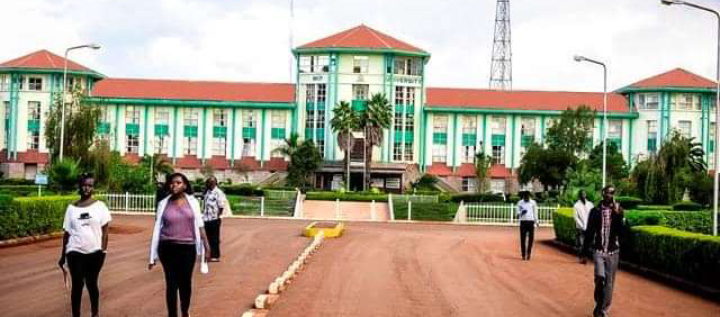
Fears As Moi University Stares At Another Abrupt Closure
Fund crunch for students in public universities has more than doubled in the past two years, indicating even tougher days for cash-strapped institutions.
Data from the University Fund (UF)—which guides state cash allocation to public universities—shows the gap widened to ksh 27 billion in the current fiscal, a 107.7 percent jump from ksh13 billion two years ago.
The capitation per student declined to Sh35,616 per student in this period, raising fears that more universities might follow the University of Nairobi by raising tuition and accommodation fees to bridge the gap.
The average allocation per student fell from 170,861 to 135,244.88 in the current fiscal. 63 in the period of June last year.
Since last year, the VCs have been pressuring the government to hike fees by almost three times to ease the cash flow crunch in institutions.
“Universities in Kenya are in a serious financial crisis as government funding continues to decline amid rising costs of administering education,” the fund says in a report.
The data shows that the allocation in the current financial year will cover 49.51 per cent of the tuition cost per student, as against the required 80 per cent. The university and students bear the remaining cost.
The low allocation per student has seen the funding crunch more than double in two years, with universities already impacted by low enrollment of self-sponsored students.
The state higher education department had last year backed a plan by the vice chancellors to hike fees, saying it would help keep the institutions afloat.
“In our very simplistic way, we thought it was necessary to increase contributions by individual students, so that there would be enough funding for every university,” Simon Nabukwesi, the principal secretary of higher education, told lawmakers last year.
In September the University of Nairobi more than doubled fees for postgraduate courses and parallel degrees to address a cash crunch caused by declining student enrollment.
The pay increase was in effect for self-sponsored first year undergraduate and graduate students who reported that month.
The institute also increased the accommodation fee by up to seven times per semester, with those in the third and final year paying Sh21,525 per semester, up from Sh3,150, while in rooms shared by four Sh2 Above, Sh15,120 will have to be paid. 730.
Fresh students reporting in September will have to pay Sh19,635 for a room shared by two students per semester under the revised rates that took effect two months ago.
The number of students has been declining for the past two years due to a sharp increase in enrollment, which has almost been outweighed by the stagnant budgetary allocation.
UF has already sent a draft funding formula to the Treasury, which, if adopted, would replace the existing criteria used since 2017.
The proposed funding formula is based on performance indicators that include the institution’s graduates in the job market, research and training on financial management for top executives.
The current formula has been used since the 2017/18 fiscal year to allocate funds to government-sponsored students in public and private universities.
The higher education sector is grappling with financial challenges that have been made worse by the COVID-19 pandemic.
Universities are struggling to honor obligations such as payroll taxes, retirement benefits, insurance premiums for employees and payments to contractors and suppliers, according to a report before parliament.
He has outstanding remittances to Kenya Revenue Authority, National Hospital Insurance Fund, National Social Security Fund, pension schemes, insurance companies and SACCOs
The debt hit Sh60 billion in the year ended June, prompting calls from the UF for emergency measures by the state to prevent further escalation.
“An audit is needed to ascertain the extent of loans in universities and to provide a roadmap on how to repay them. In the meantime, measures are needed to prevent the accumulation of excess dues,” said UF chief executive Geoffrey Monari.
The World Bank’s call to review the formula comes amid calls for the merger and closure of cash-strapped public universities, citing the need for duplication of courses and cutting spending.
Kenya has 102 public universities and campuses – which posted losses of Sh6.2 billion in the year to June and received nearly Sh70 billion from the Treasury to run their operations.
Last week, Egerton University closed its main campus in Njoro amid the financial crisis, prompted by a slowdown by lecturers and non-teaching staff.
Kisi, Laikipia, Moi and Jomo Kenyatta Universities of Agriculture and Technology have also closed some of their campuses in the wake of the cash crunch.
